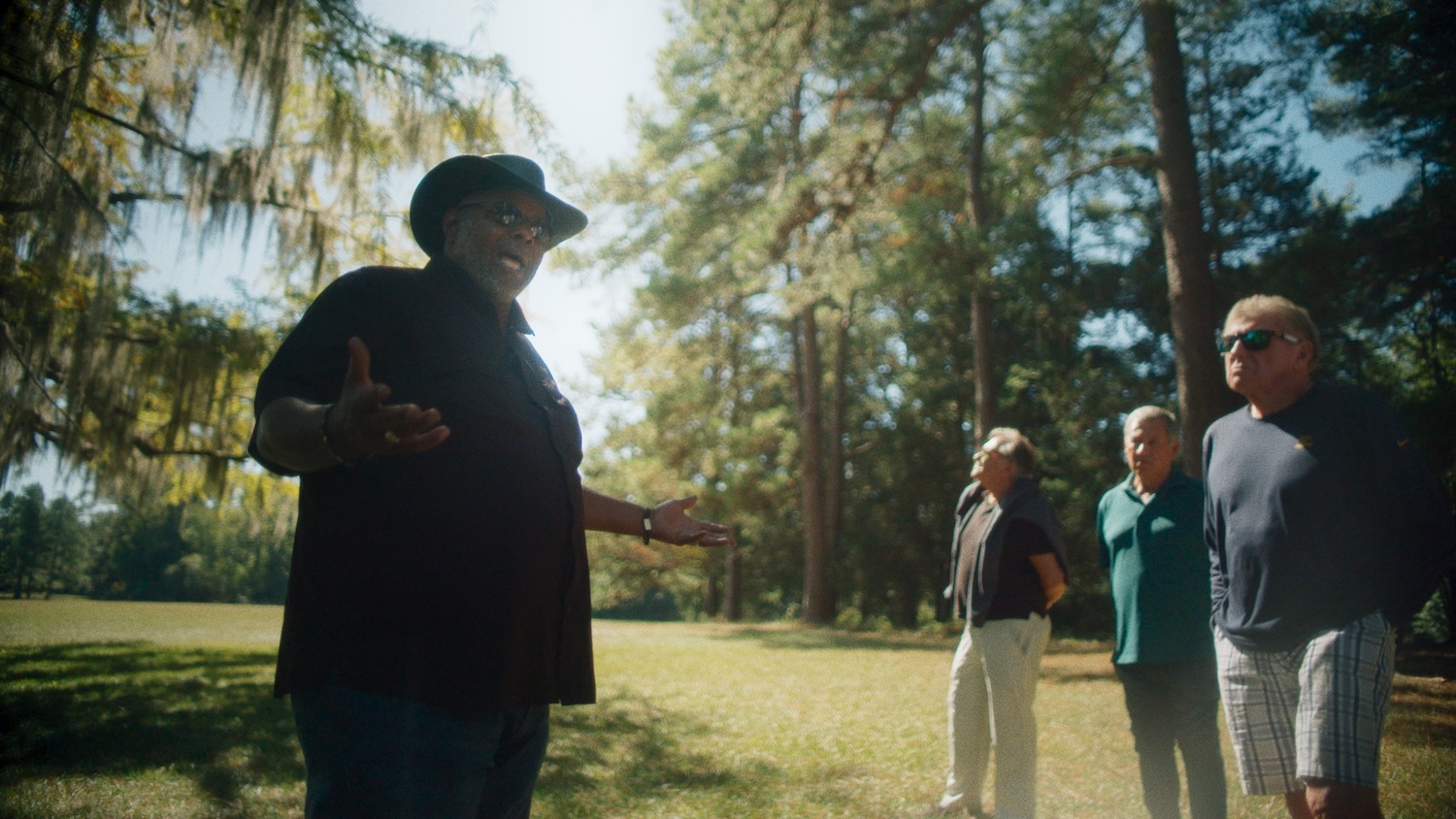
(The Tribeca Festival runs June 4-15 in New York’s Tribeca neighborhood and Hammer to Nail has boots on the ground! Check out Chris Reed’s Natchez movie review fresh from the fest. Seen it? Join the conversation with HtN on our Letterboxd Page.)
Guided “pilgrimage” tours are a big part of the sightseeing industry in Natchez, Mississippi, where America’s antebellum past rubs up uncomfortably against the realities of a pluralistic modern world. In her latest documentary, director Suzannah Herbert (Wrestle) probes the evolution of history and culture in this southern city, as attitudes change and knowledge expands. Not everyone is ready for such adjustments, making for conflict, whether genteel or otherwise.
Mayor Dan Gibson has his work cut out for him, as we learn, as far as dragging some residents out of the 19th century. But this film is far less about him than it is about those at the heart of the plantation visits, among them members of the formerly all-white Garden Club, who are now joined by Debbie, an African American owner of a renovated plantation home, herself. The difference between hers and theirs, though, is that the one she bought (and beautifully restored) used to house slaves.
And then there’s Tracy, aka “Rev,” also African American, who drives folks around in a white van as he narrates his robust and informed account of the area’s slave-holding and slave-trading background. Among his stops is the “Forks of the Road,” a national monument run by the National Park Service. It’s the site where the notorious firm of Franklin & Armfield once sold their human wares. The owner of the autobody shop across the way may heckle him, but Rev holds strong.
David, an elderly white man with Parkinson’s, at Choctaw Hall, is most definitely among the inhabitants whose notions of Natchez reside firmly in a different time. Strangely (or perhaps not), as a proud and open member of the local LGBTQ community, he never makes the connection that all marginalized groups would do better to stick together, preferring to give in to racist invective when it suits him. It’s a shame, but even more shameful is seeing the people on his tour who seem unperturbed, if not amused and gleeful, at the horrific words that can tumble out of his mouth.
To her immense credit, Herbert allows her subjects their full range of humanity and three-dimensionality, presenting them as they are, for better and for worse. When David struggles through his disease, it’s impossible not to feel some sympathy for him. I enjoy movies that force the complexity of our species out into the open.
Cinematographer Noah Collier offers beautifully constructed compositions to ground the story in the magnificent, if old-fashioned and problematic, grandeur of Natchez’s architecture. The onscreen colors pop, holding our attention as much as the historical discussions. What’s on display here is very much replicated throughout the USA, a microcosm of current national struggles. Natchez chronicles the tale of a country at war with itself while charting a path forward to peace and reconciliation. Let’s hope the right people are watching.
– Christopher Llewellyn Reed (@ChrisReedFilm)
2025 Tribeca Fest; Suzannah Herbert; Natchez movie review










